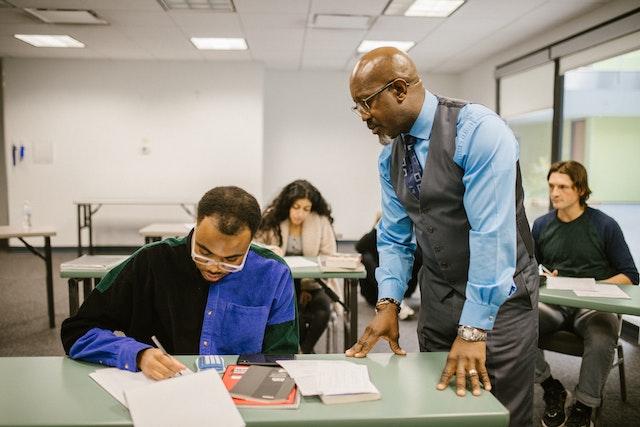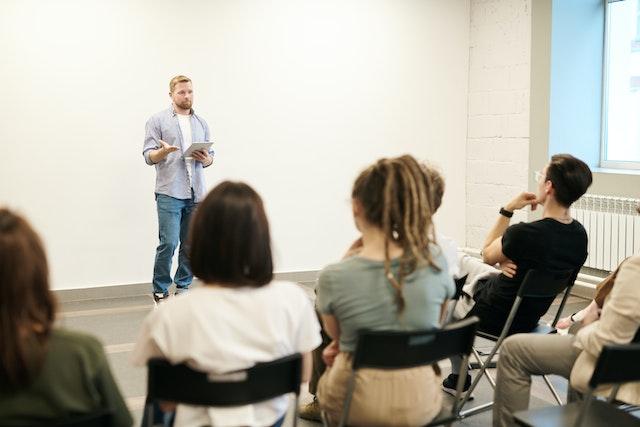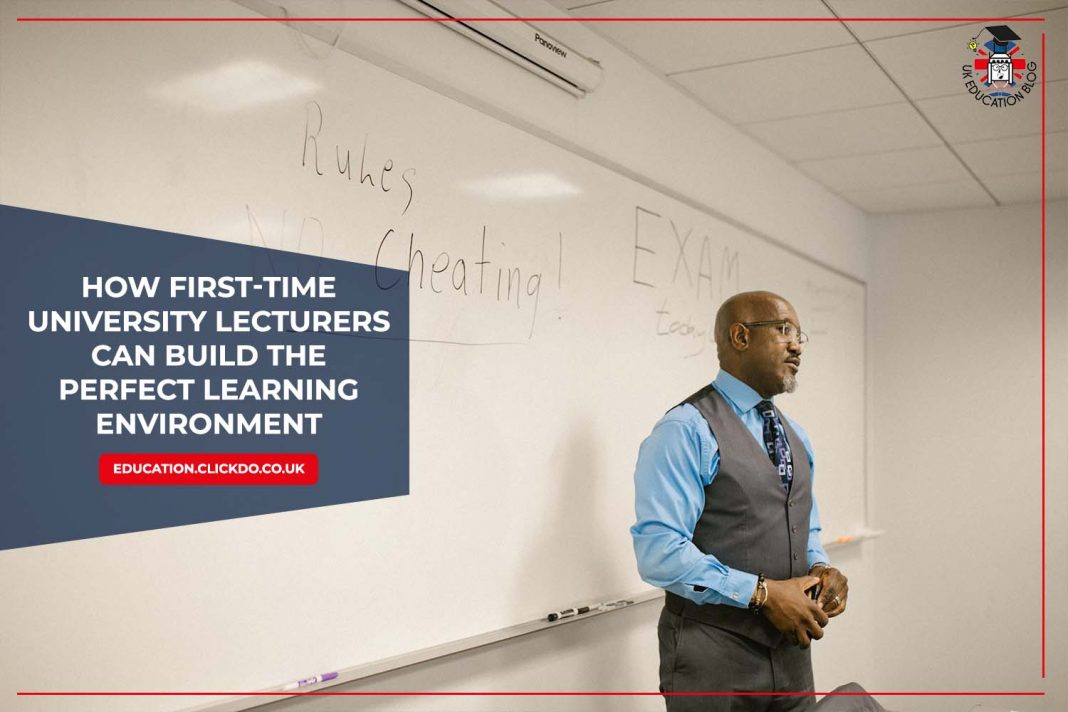Becoming a lecturer is the cumulation of many years of academic training and hard work. It is a goal that many academics aspire to and one that can bring with it a huge sense of satisfaction.
Being a quality educator is no easy task, and you owe it to your students to ensure you’re ready for the job. You’ll need to know how to communicate complex ideas and concepts in a way that is approachable and understandable.
By the time you become a university lecturer, you’ll likely be an expert in your field, with research publications under your belt. This puts you in a good position to be able to impart your knowledge to your class, but you’ll need more than expert knowledge to provide your students with a quality education.
It’s important to understand learning styles and techniques that will help your class truly absorb knowledge rather than just be able to regurgitate information.
It’s a good idea to do your own research into teaching and learn the different ways to become a quality educator.
Start With An Understanding of Background Knowledge
With each new class, it’s important to know the base level of knowledge your students possess. You might be teaching first-year students without any background knowledge or second and third-year students with a good foundation. Each will require you to modify your teaching techniques to suit the background knowledge your students have.
When first interacting with a new class, consider taking the time to get a solid idea of their knowledge level. This could be in the form of an informal test or discussion with your students. Be prepared to go over the fundamentals so that you can be sure that all your students will have the right background knowledge to get the most out of your lectures.

Take Brain Breaks
It’s important to make sure your class is always getting the most out of your lectures. If you’re hosting a longer lecture, it’s important to take regular breaks that will prevent your students from becoming fatigued – no one always works their best, and it’s vital that you recognise this in your class.
Brain breaks allow your students to take some time away from learning and come back refreshed. They shouldn’t be too long – just a few minutes is normally plenty – and you should add some variety to ensure all students get the most from them. Some good activities for brain breaks include:
Record Your Lectures
Some lecturers can get touchy when their classes are recorded, and, of course, it’s important that your students be respectful and ask for permission if they want to record your lessons themselves. Still, it’s often best to allow all students to record your lectures if they want or, better yet, record them yourself and give access to your students.
This will ensure that the recordings are of good enough quality and that all students have access to the same resources when they study. Consider investing in quality microphones so that your classroom recordings are clear and provide real value to students.

Use Visual Aids
As a lecturer, it’s your job to ensure that your students have the right environment for learning. No one learns in the same way as anyone else, so it’s important to incorporate different learning techniques into each lecture.
Visual aids can be truly invaluable for helping your class to understand complex concepts, so try to include them whenever you can. Few of us learn at our best just from listening, so try to find many different ways to include visual and even tactile learning opportunities in your lectures.
Try Out Dynamic Polling Tools
As a lecturer, you might be expected to provide digital learning opportunities at times, and it’s crucial that you know how to make digital learning just as engaging as in-person learning. Fortunately, there are plenty of tools and resources for lecturers that can help them engage with students digitally.
Polling is an excellent way for you and your students to engage with one another and can be invaluable for helping you gauge the level of understanding your students have. Vevox has an excellent app that allows for quick and easy word cloud polling, which can help you determine the understanding your class has of what they’re learning. Take a look at their website for more information and to try out the tools for yourself.

Get To Know Your Students
Connecting with your students is vital to build a good relationship and fostering a quality learning environment. You should be approachable, so students feel comfortable coming to you with questions or concerns.
Get to know each of your classes and give them the opportunity to get to know you too. You could consider hosting events outside of the lecture hall to give the chance for you and your students to socialise.
Lay Ground Rules For Debate And Discussion
Debate and discussion are pinnacles of teaching excellence, and you’ll need to ensure you provide a suitable environment for them. It’s best to set ground rules for debates in the classroom, with key tenets like respectfulness and understanding boundaries.
Let your students know the ground rules before discussions take place, so they will know how to behave during debates. This will ensure that no debate is derailed by the requirement to go over the ground rules. Be firm in enforcing your ground rules without being so strict that you inhibit free debate.

Establish A Routine
Most people learn best when they know what to expect – establishing a routine for your classes can be invaluable in this regard. That doesn’t mean that your lectures should be routine or too strictly regimented, just that you should have a general structure that you build your lessons around.
You should make sure that this allows for spontaneity; don’t get too hung up on following your class structure if, for instance, an impromptu debate begins.
Provide Plenty Of Resources
As a lecturer, you’ll need to give your students all the resources they need to be successful in your class. This doesn’t mean you should spoon-feed them all the information they need, but instead, provide them with the skills and opportunities to help them learn.
It’s a good idea to create some digital resources that all students can access, as well as copies of relevant journals and books that could help with their studies. Make sure they understand how to access further resources using key things like the university library and online journals.
The Takeaway
There’s more to being a lecturer than showing up and providing information. You need to engage with your students and instill in them a love of learning and a curiosity that will serve them well throughout their academic careers. It’s no easy task, but with the right tools and techniques, you can become an educator that will have a lasting impact on your students.
It’s vital that you prepare thoroughly and take to heart the feedback you get from your students and other academics. Being a quality lecturer means being willing to adapt and change your style when needed and having a commitment to being the best you can possibly be.
Author Profile

- Shirley Owen is a blogger and writer who enjoys writing blogs on education, technology and general news. An avid reader, she follows all the latest news & developments to report on them through her articles.
Latest entries
 learningDecember 22, 2025When Co-parenting Affects School Performance – Challenges & Solutions
learningDecember 22, 2025When Co-parenting Affects School Performance – Challenges & Solutions educationDecember 11, 2025Making Education Accessible for Mobile Families that Travel
educationDecember 11, 2025Making Education Accessible for Mobile Families that Travel learningOctober 28, 20257 Daily Classroom Strategies Helping Children With Learning Differences Thrive
learningOctober 28, 20257 Daily Classroom Strategies Helping Children With Learning Differences Thrive  educationSeptember 18, 2025A Guide to the European Accessibility Act for Schools and Universities
educationSeptember 18, 2025A Guide to the European Accessibility Act for Schools and Universities







